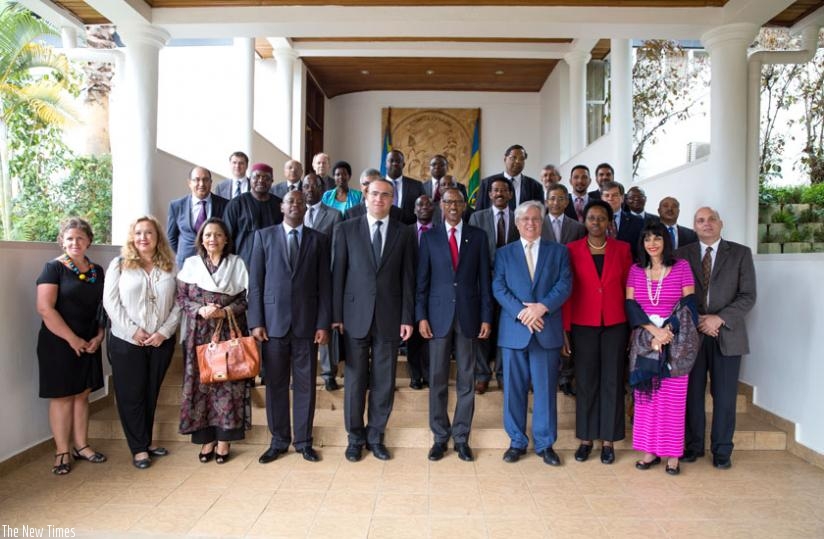The Executive Director of the United Nations Human Settlements Programme (UN-Habitat) has encouraged government to move swiftly with its plan to build secondary cities across the country.


The Executive Director of the United Nations Human Settlements Programme (UN-Habitat) has encouraged government to move swiftly with its plan to build secondary cities across the country.
Dr Joan Clos lauded Rwanda’s urbanisation policy during an interview with the media, yesterday, shortly after meeting President Paul Kagame at Village Urugwiro in Kigali.
On top of urbanising the capital Kigali, the Government of Rwanda has earmarked six secondary cities that will be the ‘poles of growth’ for the country.
They are Rubavu, Musanze, Nyagatare, Muhanga, Huye and Rusizi.
While government has attached high importance to promoting urbanisation as a strategy to transform the economy, Dr Clos congratulated the country on the policy to build regional cities.
He said not everybody needs to come to the big city, Kigali in Rwanda’s case, because it can create strains on the city and collapse its infrastructure.
"It’s crucial for a good national urban policy to have intermediate cities. It’s a very important strategy in order to avoid the spontaneous collapse of the mega capitals that we are seeing in many parts of Africa,” he said.
Dr Clos was leading a 26-member delegation of UN-Habitat officials to Rwanda.
A statement from the Presidency said the delegation was visiting the country to share experiences about the role of urbanisation in development as well as learn from Rwanda’s home-grown solutions.
"The fact that you have a strategy of developing intermediate cities in the country of eleven million people is a very clever and very positive aspect of your urban policy,” Dr Clos said.
The UN-Habitat’s work in the country has focused on supporting capacity building and technical advisory services to key government institutions.
Partnership for progress
Officials said through partnership with UN-Habitat, the National Urbanisation Policy was developed and now supports physical planning and capacity building of secondary cities.
UN-Habitat also partners with Rwanda in the area of sustainable development, slum upgrading and urban sanitation.
The Minister for Infrastructure, James Musoni, said master plans have already been designed for all the six secondary cities in the country.
He said what will follow under the country’s Second Economic Development and Poverty Reduction Strategy (EDPRSII) is to put the appropriate infrastructure in the secondary cities as well as the necessary production facilities to create off-farm jobs for the city dwellers.
Dr Clos also appreciated the fact that government has made efforts to plan in advance how the cities will look like.
"Urban designs should be done before the people arrive because if you plan when people are already there then it becomes very expensive and brings conflicts because you need to move the people,” he said.
Rwanda has prioritised urbanisation under the county’s EDPRSII and Vision 2020.
editorial@newtimes.co.rw


